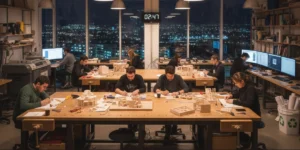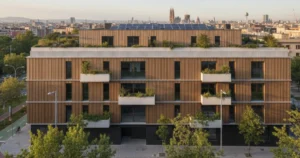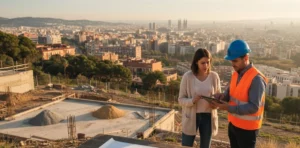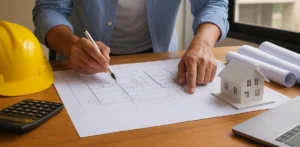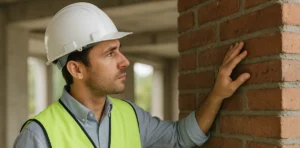Table of Contents
- Introduction: The Importance of a Building Permit in Barcelona
- When is a Building Permit Required in Barcelona?
- Types of Construction Permits in Barcelona
- Requirements and Necessary Documentation
- Step-by-Step Process for Applying for a License
- Regulations and Ordinances to Consider
- Costs Associated with Building Permits
- Common Mistakes and How to Avoid Them
- Frequently Asked Questions about Building Permits in Barcelona
- Conclusion: The Key Is in Professional Advice
Introduction: The Importance of a Building Permit in Barcelona
Starting a renovation or construction project in Barcelona without the proper permit can result in fines, work stoppages, or even demolition. Obtaining a building permit in Barcelona is an essential step to ensure that any work on a property complies with planning, safety, and environmental regulations.
With the arrival of 2025, some administrative criteria and online procedures have been updated, facilitating—but also more strictly regulating—the application process. Therefore, this guide aims to be a comprehensive and up-to-date resource for owners, architects, and developers planning renovations or construction in Barcelona.
When is a Building Permit Required in Barcelona?
Not all work on a home, business, or building requires a building permit. However, many of them are subject to municipal control. You'll need a building permit in Barcelona when the work affects the structure, façade, interior layout, or involves a change in the property's use.
For example, building a new floor, modifying load-bearing walls, or extending a home requires a Major Works Permit. However, painting, replacing interior doors, or renovating a bathroom without altering the layout may be exempt, although they often require prior notification.
On the official website of Barcelona City Council you can directly check what type of procedure applies to your work and carry out the corresponding management electronically:
Difference between Major Work and Minor Work
The classification of an action as major or minor works not only determines the type of license required, but also the documentation, approval deadlines, and processing costs.
- Major Works: Structural interventions, extensions, changes of use, and renovations affecting common elements in multi-family buildings. Examples include: expansion of the built area, roof replacement, opening of facades, among others.
- Minor Works: Interior renovations without impacting the structure or common elements. Examples: replacing tiling, renovating fixtures, replacing interior woodwork, etc.
Within minor works, there are two administrative categories: Immediate Communication (for very simple works) and Deferred Communication, which requires municipal review before execution.
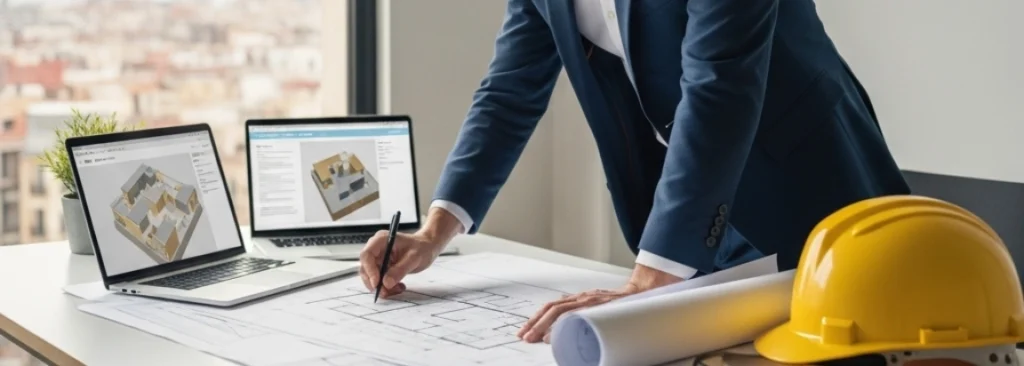
Types of Construction Permits in Barcelona
In Barcelona, there are different types of administrative authorizations depending on the type and scope of the project. Correctly identifying which one you need is the first step to avoiding delays or penalties.
- Major Works Permit: This is required when the work affects structural elements, the façade, or the roof, or involves expanding the built area. It is also required for changes of use (for example, converting a commercial space into a home) and for work on common areas in residential communities. It requires a technical project approved by an architect and is usually processed through a standard procedure.
- Deferred Notice: Applies to minor projects that require prior review by the City Council, such as the interior layout of an apartment or the replacement of windows visible from public spaces. Although a certified project is not required, a technical report may be required.
- Immediate Notice: For simple projects such as painting, replacing floors, or renovating sanitary fixtures or installations without affecting the layout. This can be processed directly online and, in many cases, allows the work to begin immediately after the notice is submitted.
Practical example:
- Renovating a kitchen without moving walls = Immediate Communication.
- Change room layout = Deferred Communication.
- Building a new floor or demolishing load-bearing walls = Major Works License.
Can a work be legalized without a license?
Yes, but it's a more complex process. If you've carried out work without the proper permit, you must submit a legalization application with all the documentation as if it were a new project, including a technical project, a descriptive report, and proof of regulatory compliance. The City Council will assess whether the work complies with current planning parameters; if not, its partial or total demolition may be required.
Requirements and Necessary Documentation
The documentation varies depending on the type of procedure. The basic documents for each type are summarized below:
- For Major Works License:
- Complete technical project drafted and approved by an architect.
- Applicant's NIF and property title or authorization.
- Construction waste management study.
- Proof of payment of ICIO (Tax on Constructions, Installations and Works).
- Certificate of urban feasibility if applicable.
- For Deferred Communication:
- Simplified technical report.
- Basic plans.
- Detailed description of the work.
- Proof of payment of administrative fees.
- For Immediate Release:
- Duly completed application form.
- Brief description of the performance.
- Proof of payment of fees (made in the same procedure).
Remember that all procedures can be carried out online at the City Council's official website:
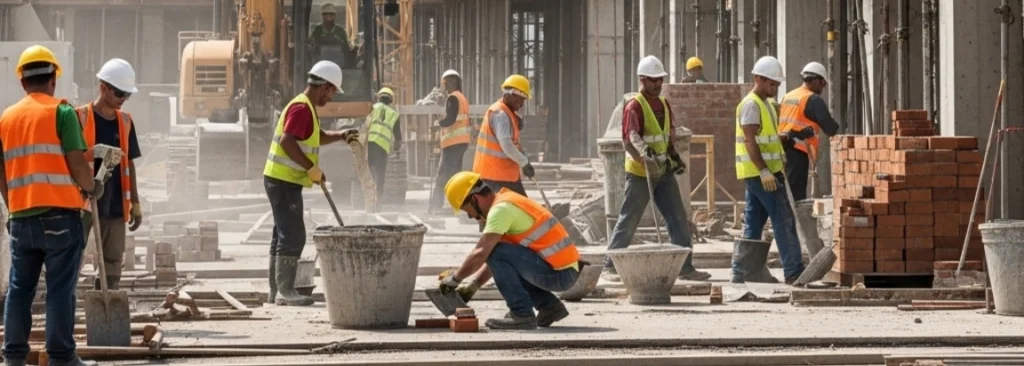
Step-by-Step Process for Applying for a License
- Prior consultation (optional but recommended)
Before starting the process, you can request a pre-urban planning consultation to confirm that your project complies with current regulations. This is especially useful for major projects or listed buildings. - Submission of the application
The process can be completed in person at the City Hall offices or, preferably, online through the website. There you can upload documentation, make payments, and track your application. - Resolution deadlines
- Major Works License: between 2 and 4 months, depending on the complexity.
- Deferred Communication: between 15 days and 1 month.
- Immediate Communication: automatic approval if requirements are met.
- Administrative silence
In certain procedures, if there is no response within the legal deadline, "administrative silence" is applied. In Barcelona, this is usually negative in major construction permits and positive in some deferred communications.
Regulations and Ordinances to Consider
Applying for a building permit in Barcelona requires complying with a set of technical and urban planning regulations. Although the requirements may vary depending on the type of project and the area, there are two fundamental legal frameworks:
- Ordinance on the Processing of Urban Planning Licenses (OTLU): Regulates all administrative procedures, deadlines, required documentation, and processing conditions. It is mandatory for both major and minor projects.
- Technical Building Code (CTE): Establishes the basic requirements for safety, health, accessibility, and energy efficiency in buildings. It primarily affects major projects or changes of use, but it is advisable to consult it even for interior renovations.
Furthermore, if your project is located in a listed building or in a protected heritage area, you must take into account the specific heritage conservation regulations and the General Metropolitan Plan (PGM).
Costs Associated with Building Permits
The cost of processing a building permit in Barcelona varies depending on the nature of the project. Below are the main financial factors to consider:
- ICIO (Tax on Constructions, Installations and Works): It is a mandatory tax and represents between 2% and 4% of the project's physical execution budget. It is one of the main costs.
- Urban planning feesThe City Council charges fees for processing the application, technical review, and other administrative services. These fees typically range from €40 to €300, depending on the project.
- Technical expenses:
- Project approval at the professional association.
- Fees of architect, technical architect or engineer.
- Mandatory civil liability insurance.
Summary of estimated costs:
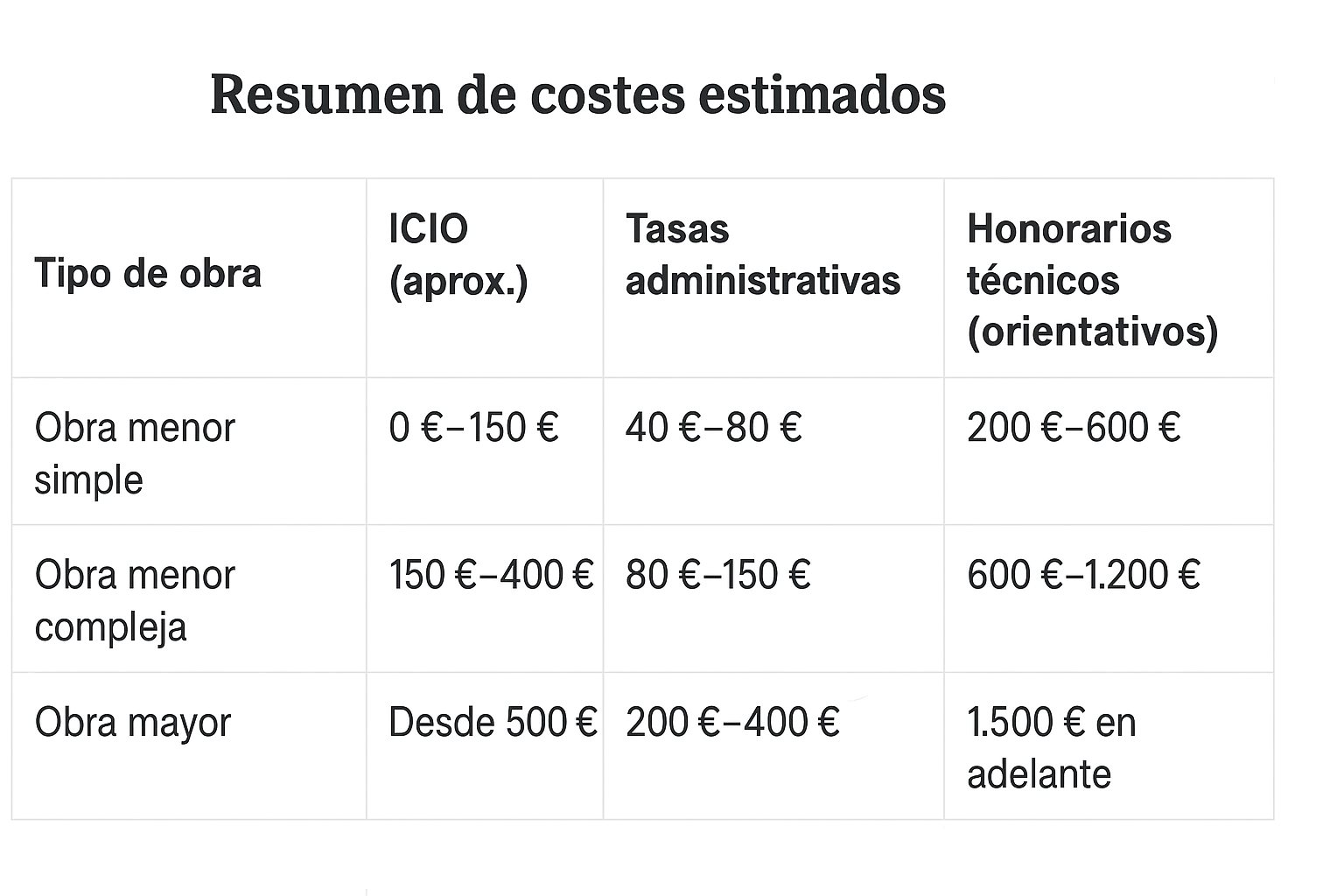
Note: These values are approximate and may vary depending on the stated budget, affected area and project complexity.
Common Mistakes and How to Avoid Them
One of the biggest problems identified by Barcelona City Council in recent years is the initiation of construction projects without a permit or with incomplete documentation. Below are the most common mistakes and how to avoid them:
- Starting work without a license: Often due to ignorance or haste, many homeowners begin renovations without completing the process. This can lead to financial penalties and the halting of the project.
- Failure to comply with legal deadlines: Submitting documentation late, failing to respond to requests, or allowing a license to lapse are common mistakes that require the process to be restarted.
- Lack of technical documentation: Incomplete projects, outdated plans, or certificates not signed by competent technicians are common causes of rejection or delay.
Key recommendation: Whenever you're planning to start a renovation or construction project, consult with a licensed architect or technician beforehand. Sound professional advice will save you time, money, and potential penalties.
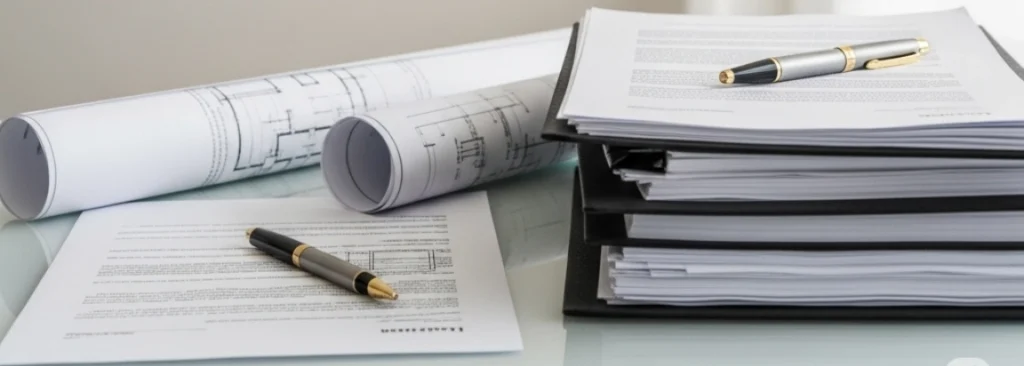
Frequently Asked Questions about Building Permits in Barcelona
Can I make a work without a license if it is small?
It depends. Some very minor projects can be carried out without a license, but with prior notification. For example, painting interior walls or replacing a kitchen cabinet without altering the layout doesn't require a license, but it does require notification. It's always advisable to check the municipal website.
How long does it take to obtain a building permit in Barcelona?
The deadlines vary depending on the type of procedure:
- Major works license: 2 to 4 months.
- Deferred communication: between 15 and 30 days.
- Immediate communication: automatic approval if requirements are met.
What happens if my license is denied?
You will be notified in writing of the reason for the denial, and you will be able to present objections or redesign the project. If you have already started the work, you could receive financial penalties or even a demolition order.
Can a license be transferred to another owner?
Yes, but you must notify the City Council and include the new owner's information. It's important that the scope of the project and its technical design remain unchanged.
How long is a building permit valid for?
Generally, licenses are valid for 6 months to 1 year. If work doesn't begin within that time, they may expire, and you'll need to request an extension or start a new application.
Conclusion: The Key Is in Professional Advice
In 2025, obtaining a building permit in Barcelona remains a technically and regulatory-demanding process, but a necessary one. Knowing the types of permits, the required documentation, and the processing times will allow you to plan better and avoid costly mistakes.
If you're planning a renovation or construction project, our advice is clear: always consult a qualified architect or technician. Their experience can make the difference between a smooth process or a frustrating experience. They can also help you manage all the online procedures on the official Barcelona City Council website:
Do you have questions or need a quote? Contact us and start your work with security and guarantees.
